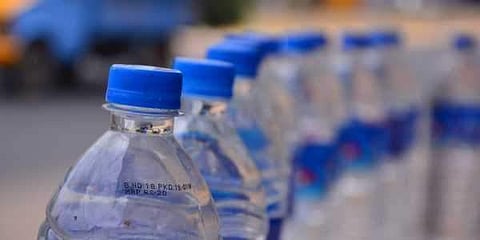

NEW DELHI: Taking a grim view of packaged drinking water industry flouting norms, a Parliamentary standing committee panel has asked the government to bring in robust regulations and to tax large companies, besides barring exploitation of groundwater.
The Parliamentary Standing Committee on Water Resources highlighted the large number of samples failing basic quality tests to seek better mechanism for ensuring strict checks. It drew the government’s notice to the issue of multiple agencies involved in the regulation of these units.
“The Committee is perplexed to note that despite the laid down stipulations, a large number of licenses have been given in States where significant number of over-exploited (groundwater) units are lying, such as Andhra Pradesh (41 units), Gujarat (24 units), Karnataka (63 units), Tamil Nadu (374 units) and Uttar Pradesh (111 units),” it stated, recommending that these units be mandatorily asked to source raw material only from surface water or areas which receive regular and heavy rainfall.
As per government data, the packaged drinking water plants are extracting 13.3 Million Cubic Metres of groundwater annually. The panel, while quoting the submission of the FSSAI, said the reverse osmosis process of these plants could lead to hardness of groundwater and other pollution.
Recommending taxation on these units, the panel argued it would discourage wastage. “The imposition of tax at higher rates can be an effective deterrent against indiscriminate use of groundwater. The government can use the revenue for taking alternative measures to increase accessibility of safe drinking water to the poorer sections of the society.” It urged the government to explore the PPP mode to provide potable water in rural areas affected by arsenic, fluoride contamination.